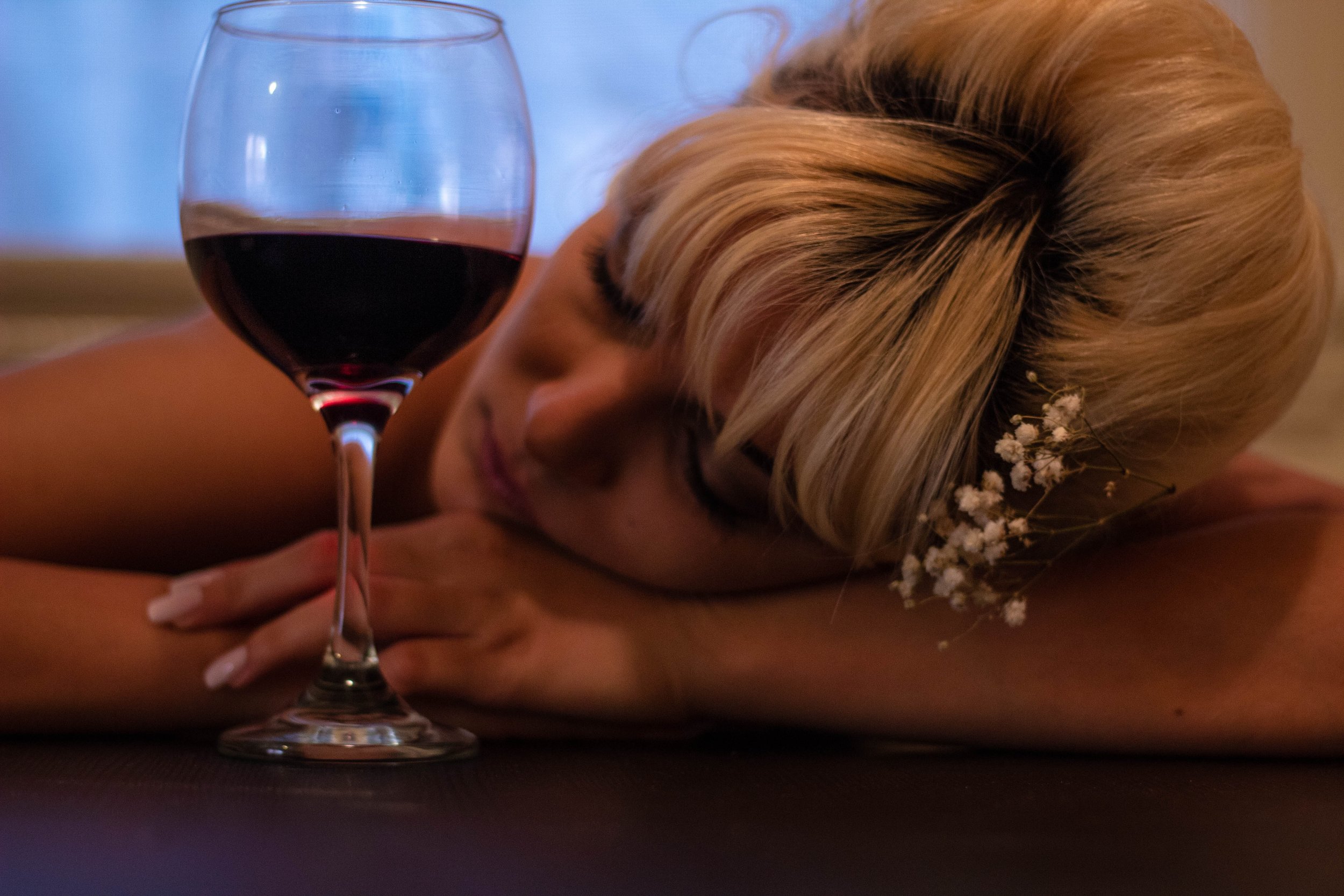It’s hard, when you first decide you might be drinking too much, to contemplate never drinking again.
I mean, it sounds so final. Never? Ever? What about my bachelorette party?
It’s one of the reasons why we (personally) went with moderation first. The idea of never drinking again was impossible, but moderation seemed reasonable (and in fact, it felt important to us to prove to ourselves that moderation could work, because that meant we weren’t “alcoholics”).
Baby steps can be a helpful approach - instead of “going sober,” maybe “go sober for seven days,” or even a month. It has to feel achievable if you’re going to make it.
However, we think it’s ALSO important (even if you choose the baby steps approach) that you confront head-on the fear you feel when contemplating going sober. Why? So you can understand the roadblocks in your way to your goals and how to tear them down. After all, whether you choose sobriety or moderation, you want to truly redefine your relationship with alcohol to where you can honestly take it… or leave it.
Here are some of the most common reasons people are afraid when they contemplate never drinking again, and how you can challenge them:
All your fun times are associated with drinking, so you think you’ll never have fun again. This was a big one for us. Drunk college reunions, drunk birthdays, parties, brunches, etc. What is so hard to see at that time is what can take the place of being drunk, and why that can be so much better. With the new energy, self-worth, creativity and productivity you’ll feel without drinking, your options expand; they don’t contract. Instead of drunk brunches with friends, maybe you’ll try surfing (sober. obviously). You’ll build new skills. You’ll learn new things. Instead of passing out by 3pm, you’ll get in the best shape of your life, which has even further positive impact on your mental health. There is more fun, not less, on the other side of the rainbow.
Everyone else gets to do it, and you’re saying I can’t? It’s natural to feel deprived at first, because you’re used to thinking of alcohol as chocolate cake. It’s a treat, and if you can’t have it, you feel left out. But let’s refocus on the downsides here for a second. You know what else you don’t ‘get’ to do? You don’t ‘get’ throw up all over your dorm room. You don’t ‘get’ to apologize to friends and family for things you don’t remember saying. You don’t ‘get’ to forget important moments. There’s a lot you’re missing out on that’s pretty great to miss out on.
It’s not such a big deal if I drink too much, is it? Apart from the (very real) health risks of even moderate drinking, we think there’s even more at stake if you drink too much. After all, if you continue to drink when you know you can’t just take it or leave it - that you really think you have to have it - you are basically giving in to an addiction. You’re deciding that it’s ok that you can’t deal with life without a substance. And that, as we all know, never ends well. If you pursue moderation, it has to be from a place of truly believing that you can take alcohol or leave it.
You just really love the feeling of being drunk, and can’t imagine not having it again. This is perhaps the hardest one. There are few things in life that give you that euphoric rush like a drug can (that’s part of why they’re addictive). Exercise and a healthy diet do a lot to make us content and even-keeled - both have a measurable impact on our moods. But here’s the real kicker: fun while drunk is like borrowing happiness from the next day. You get a euphoric feeling now, and then tomorrow, not just a hangover, but a host of potential consequences for your health, your self-esteem, your productivity, and your relationships with others. It doesn’t come for free. And the ROI sucks.
These were a few that occurred to us. What else are your reasons for being afraid to stop entirely?
If you have decided to change your relationship with alcohol, we’d love to help. Our app offers members over 75 motivational exercises, a peer support group for advice and empathy, and tracking and insights to get a handle on why you drink. Give it a shot today!



